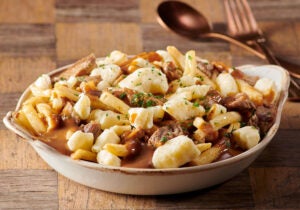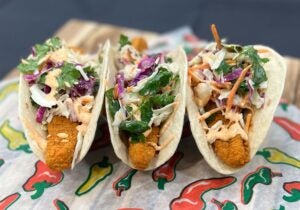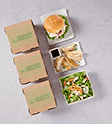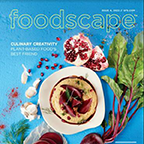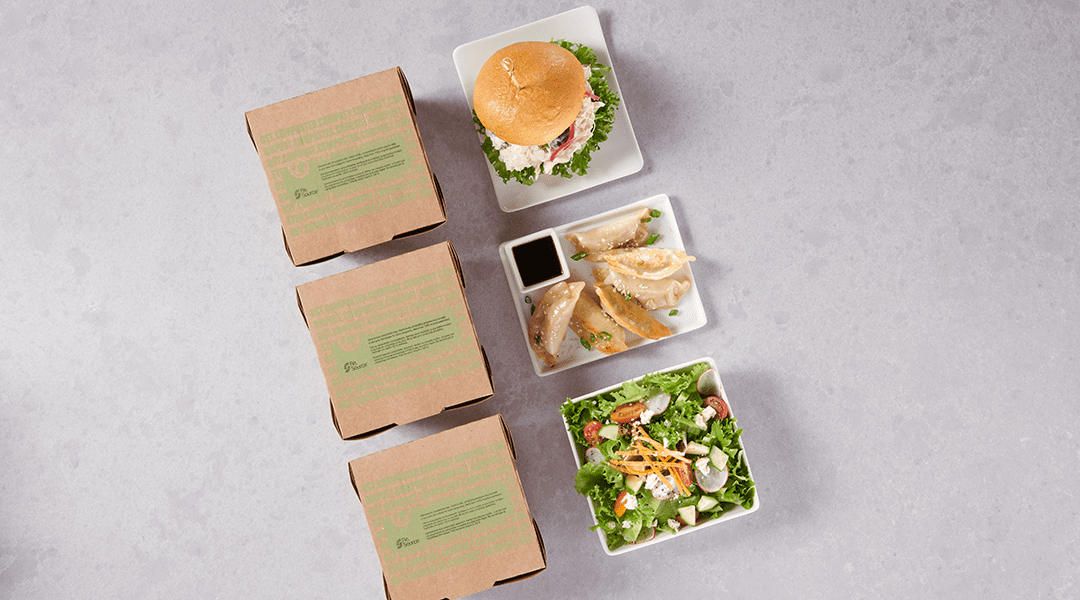There are many things a foodservice operator needs to do to achieve success. To help you stay on track, here’s a checklist to refer to as you plan your work and work your plan.
How to Become a Successful Foodservice Operator
1. Identify, define and communicate your brand
This is the all-important “Who am I?” question. Major chain operations more or less decide this question for their franchisees, but independents need to give some serious consideration to this matter. It’s important to differentiate your restaurant. Steakhouse or Italian? Casual-dining or upscale eatery? Burgers-and-fries or seafood-and- pasta? Sports bar or romantic rendezvous? Strip mall or distinctive destination location Family-oriented or adult-focused?
You can communicate your brand and image in many ways—through your logo and other elements (typography, colors, positioning statement, etc.) your menu items, menu design, restaurant décor, and marketing, as well as your hiring and training programs. Try to understand what your core audience is seeking.
2. Facilitate collaboration
Success really comes down to teamwork and effective employee meetings. Make sure your whole team knows your goals and what progress you’re making toward them. Inform and consult often. Always involve more people in forward thinking. Try to envision where you’ll be in two years, and share this with everyone.
3. Hire according to capabilities
Be sure to hire hospitality-minded people. Some operators rely on personality testing, behavioral assessments, and analysis in the hiring process. Online testing is becoming an important tool. Also test to the core competency of the job. For example, have chef candidates prepare one of your popular entrées.
4. Train well—and document it
Training is an investment against turnover. Develop all your people (including yourself) always, forever, and continuously. Always do what you say you’re going to do. If you give servers a menu test, grade it and go over it with them.
5. Align your core menu with your brand
Decrease the size of your core menu so you can execute at an impeccable level. Don’t fall into the trap of trying to do too much. Customers want you to be predictable and consistent. The more you try to do, the less well you’ll execute. You can either do 20 things well or 60 things poorly.
Among other benefits, a limited core menu allows an operator to offset price volatility. Instead of offering, say, 10 meat entrées, offer three or four and then run limited-time offers (LTOS) depending on the price of beef, poultry, and pork. Stay nimble. You want to be able to react to the market.
6. Become a marketing “Mad Man”
To succeed, you’ll have to embrace marketing. Read, study, talk to people— find out what works. Highlight your seasonal themes by offering at least four seasonal menus per year (always, of course, within your core brand identity). Make them exciting. Design marketing campaigns for them. Seasonal menus are part of the entertainment value of a restaurant.
7. Face facts
Data will help you make good decisions. We’re talking about all the metrics that help you understand your business: guest counts, check averages, cost of goods, product yields, labor costs, and much more. There are many programs that will fit your needs. (Again, your restaurant foodservice distributor can help you with this.) If you don’t enjoy working with computer programs, find someone on your team who does to help you with them.
Remember that numbers speak louder than words. We tend to get too personal and emotional in our decisions. Many operators write menus with themselves—not customers—in mind. Are you scheduling a particular person on weekday nights because that’s when he or she is available or because that’s your busy time? Use data to find the answers.
8. Reward loyalty and commitment
This means with your entire audience. Certainly you reward customer loyalty with frequent-diner programs and the like. But you also need to reward your team members, community, and stakeholders.
Part of rewarding loyalty and commitment is getting to know those most loyal to you. Think of how much money you spend in a grocery store without the manager or workers ever acknowledging you by name. We don’t expect the personal touch there, but we do in our favorite restaurants. So don’t make your loyalty programs a mere matter of math. Put some warmth into them. If it’s just a transaction and not a feeling, you’re missing out on an opportunity.
9. Embrace feedback
A lot of people struggle with customer feedback. But building success means taking an honest look at ourselves. Feedback is a gift. So don’t get defensive if it’s negative. When customers—either through data or comments—are complaining, that means they want to come back and rediscover what they liked about you in the first place. Worry if you’re not getting feedback!
10. Be the head coach
Your focus and ability to attract and keep customers will determine your success. Nothing beats guests’ relationships with the management and the crew. It’s more a matter of what you do than what you say. If you tell your employees, “We’re going to treat people with respect,” and then you swear at your staff and call them stupid, it’s not going to fly. Remember, the way you treat your employees is the way they will treat your guests. It’s OK to be demanding, but this is a people business. It’s hard to make money from an empty dining room.
Do you have any success tips for foodservice operators that are not mentioned above? Please share in the comments below.
